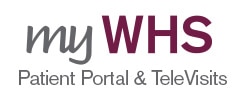If you’ve had heart surgery or experienced a heart attack or another cardiac condition, the path to regaining strength, returning to favorite activities and improving your long-term quality of life begins with cardiac rehabilitation.
The Cardiac Rehabilitation Program at UPMC Washington provides individualized, medically supervised exercise, education and counseling for individuals who have experienced a cardiac event or need to reduce their risk of heart disease. Participants in cardiac rehab improve their fitness in a safe environment and learn how to improve their heart health and reduce their risk for a heart problem in the future.
Is Cardiac Rehabilitation Right for You?
You may benefit from cardiac rehabilitation if you have had:
- a heart attack (myocardial infarction)
- angina (chest discomfort)
- angioplasty
- congestive heart disease
- coronary artery bypass surgery, valve surgery or a heart transplant
You can also participate in cardiac rehabilitation if you want to reduce your risk for heart disease.
Getting Started
You need a referral from a physician to participate in cardiac rehab. Before beginning the program, you will meet with a cardiac rehab registered nurse (RN) for an assessment. During this meeting, the RN will ask about your medical history and medications. You and the RN will also discuss your physician’s order and goals for rehab.
Our staff cardiologists oversee the Cardiac Rehabilitation Program, and the care team also includes RNs and exercise physiologists. Together, these providers tailor cardiac rehab to fit each patient’s goals and abilities. Patients receive a custom diet plan and an individualized exercise program.
Exercise and Education
The Cardiac Rehabilitation Program is located on the fifth floor of UPMC Washington Hospital, where a therapy gym features treadmills, exercise bicycles, weights and other equipment. Throughout cardiac rehab, you will attend exercise sessions three times per week that include stretching, aerobics and resistive weight training. During each session, RNs and exercise physiologists will monitor your heart rate and blood pressure using electrocardiograms to ensure safety. The exercise program is designed to improve your cardiovascular fitness, strength and endurance.
Education is an important component of heart health. Weekly education sessions will help you and your family learn about healthy lifestyle habits. Group sessions and individual counseling are available to address:
- Medication and risk factor modification. Providers will share tips for managing medications and making changes to your daily habits that can improve heart health.
- Nutrition and weight control. You will learn how to control portions, read food labels and choose healthy foods, among other skills.
- Smoking cessation. If you smoke, you’ll learn about options for quitting, which is beneficial for your heart no matter how long you’ve been a smoker.
- Stress management. Learn tips to cope with the times when you feel like you have too much on your plate, which can contribute to high blood pressure and prompt you to make unhealthy choices, such as overeating.
Abundant Benefits
Participating in cardiac rehabilitation can reduce your five-year risk of death after a heart attack or bypass surgery by up to 30%. Other benefits of cardiac rehabilitation include:
- a healthier lifestyle
- better control of symptoms, such as shortness of breath
- improved fitness and stamina
- lower risk of depression
- more confidence
- opportunities to socialize with and find support from other cardiac rehab participants
To schedule a cardiac rehab appointment, please call (724) 579-1575.
PAD Rehabilitation Program
Peripheral arterial disease (PAD) is a condition that doctors diagnose in 1 in every 20 adults over the age of 50, and 1 in every 5 adults over the age of 70.
PAD occurs due to the gradual build-up of plaque within the leg arteries, which causes a person’s risk to increase with factors such as tobacco use, diabetes, high blood pressure, abnormal blood pressure, African American ethnicity, heart disease, heart attack, or stroke.
This vascular disease may result in disabling symptoms like leg pain while resting, leg cramping while walking, nerve damage, or skin breakdown.
To help people suffering from PAD pain, WHS offeres a Supervised Exercise Therapy (SET) program. SET is a moderate-intensity walking program that targets the muscles that hurt when a patient walks, such as the calf, buttocks, and thighs, along with lifestyle coaching.
SET helps improve circulation andcan reduce or eliminate pain while walking and has been proven to be significantly more effective than unsupervised exercise in preventing the progression of PAD and lowering the risk of cardiovascular events prevalent in these patients.
The program’s goals are to improve functional capacity, decrease symptoms, and reduce risk factors. To achieve these objectives, the program requires up to 36 exercise sessions over 12 weeks, lasting 30-60 minutes each session, conducted in the WHS Cardiopulmonary Rehab department, and directly supervised by a physician, PA, or CRNP.
If you’re interested in scheduling a PAD rehab appointment, please call (724) 579-1575.


